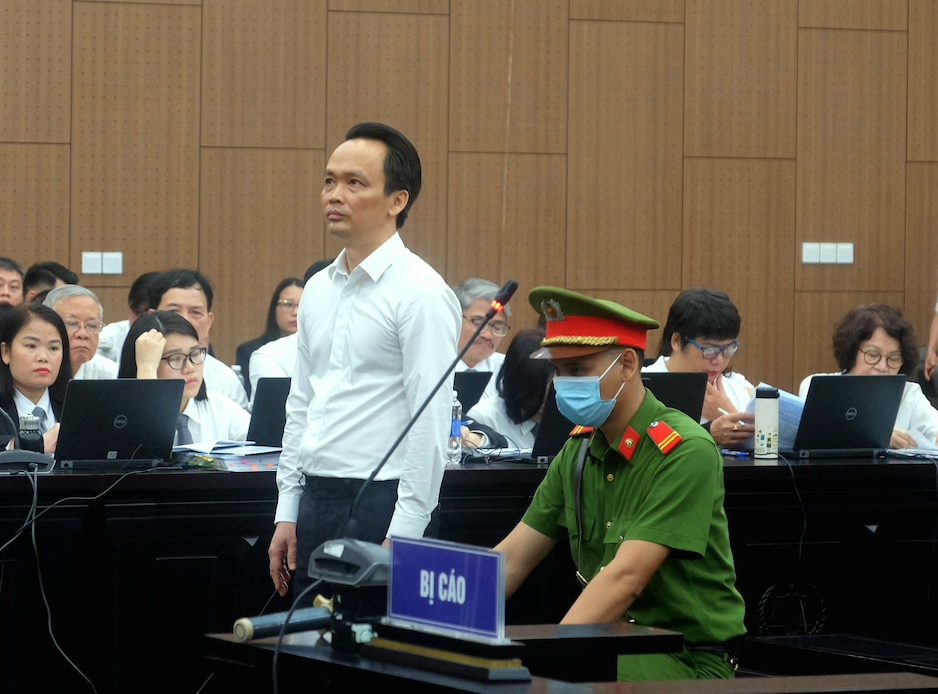Very few criminal cases see defendants voluntarily paying VND 1,400 billion (approximately USD 55 million) in compensation during the appellate stage. This new development may have a significant impact on the court’s final decision.

As previously reported by VietNamNet, Le Thi Ngoc Diep, wife of Trinh Van Quyet (former Chairman of FLC Group), recently submitted over VND 1,400 billion (around USD 55 million) to the Hanoi Civil Judgment Enforcement Department as compensation on behalf of her husband.
This payment was made ahead of the appellate hearing scheduled for June 17 and fully offsets the damages in the criminal case involving “stock market manipulation” and “fraudulent appropriation of property” at FLC Group. The total compensation now stands at approximately VND 2,400 billion (nearly USD 95 million).
Commenting on this development, Dr. Dang Van Cuong, a lawyer, noted that it is extremely rare in criminal proceedings for a defendant to voluntarily make such a large payment during the appellate phase. He emphasized that this is a new and meaningful factor in resolving the case.
Quyet’s efforts to repay damages and rectify the consequences of his actions are crucial grounds for the appellate court to consider amending the initial judgment and potentially reducing the sentence.
According to the lawyer, in cases involving property violations or economic crimes, restitution and damage compensation are among the key considerations in determining sentencing.
In such cases, compensation not only reflects a defendant’s remorse and acknowledgment of wrongdoing, but also directly addresses the consequences of the criminal behavior. When a defendant takes proactive steps to make amends, law enforcement and judicial bodies consider not only the attitude and awareness of the accused, but also the nature and severity of the offense, as well as the actual damages incurred, to determine an appropriate punishment.
In many cases, the appellate court may adjust the original verdict to impose a more lenient sentence.
At the initial trial, Trinh Van Quyet received an 18-year prison sentence for “fraudulent appropriation of property” and an additional 3-year sentence for “stock market manipulation,” totaling 21 years. Dr. Dang Van Cuong remarked that this was a particularly harsh sentence.
Earlier, the appellate trial for Quyet and his co-defendants had been postponed several times due to the former FLC Chairman’s health issues. At a hearing on March 25, his lawyer Nguyen Trong Nghia revealed that a medical assessment conducted on March 14 concluded that Quyet was suffering from stage 3 heart failure and several other serious illnesses, putting his life at risk and rendering him unfit to appear in court. As a result, the defense requested a postponement.
Dr. Dang Van Cuong added that the defendant’s severe health condition could be considered a mitigating factor under Article 51 of the Penal Code, allowing for a reduced sentence. Any decision must align with legal principles while also embodying humanitarian values. Sentencing should strike a balance between deterrence and leniency, giving the accused a chance to rehabilitate.
Evaluating appeals and reducing sentences for those who meet certain criteria is consistent with the current humanitarian and lenient policies of the Party and the State, in accordance with Politburo Resolution 68. The policy encourages offenders to acknowledge their wrongdoing, show remorse, and take steps to mitigate the damage their actions have caused society.
T. Nhung